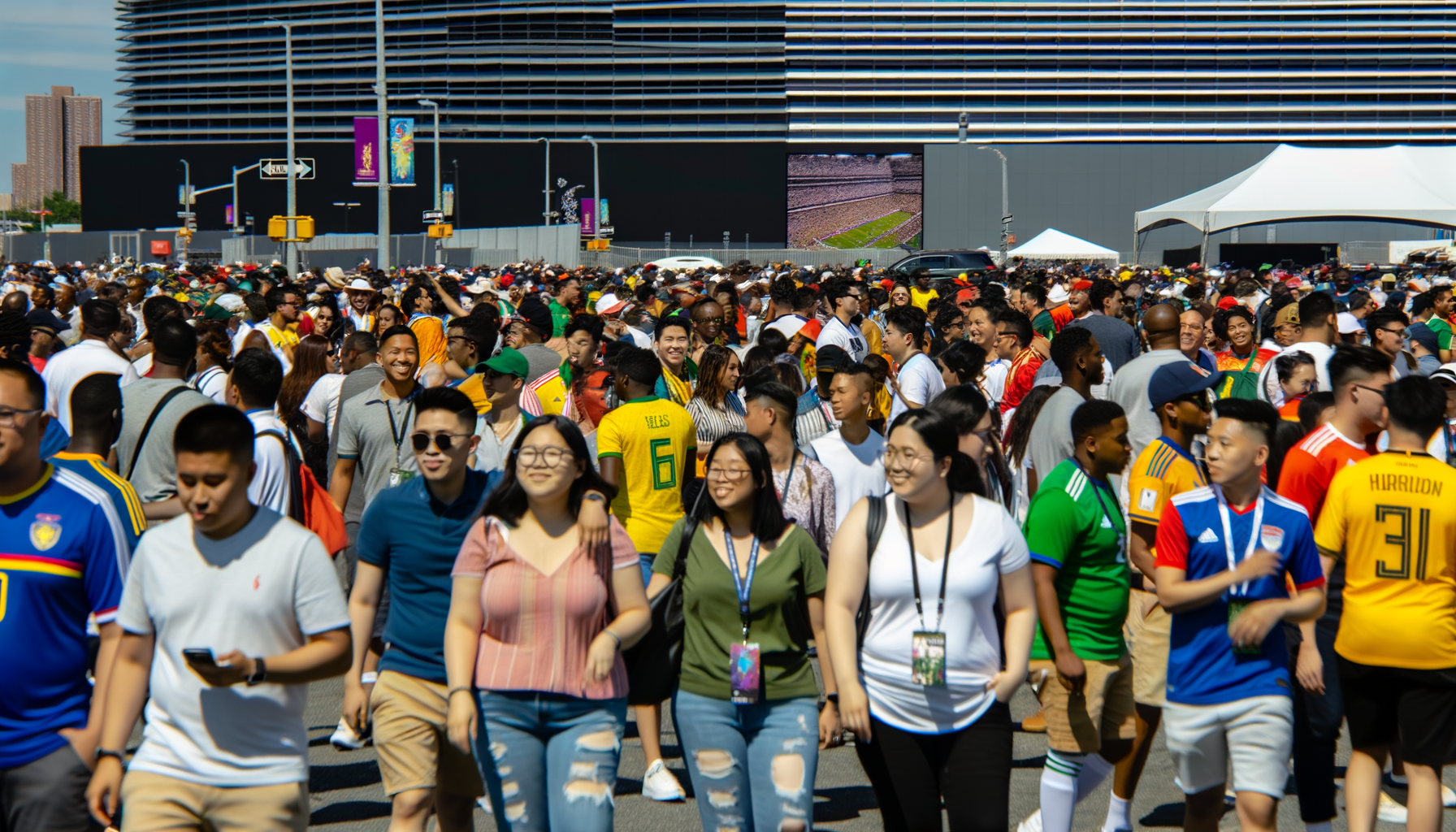World Cup 2026: Will Fans Really Feel Welcome In The USA?
Explore the challenges facing fans at the 2026 World Cup in the USA, from ticket pricing and visa delays to security concerns and political tensions.

By Editorial
Introduction to the 2026 World Cup atmosphere
The 2026 FIFA World Cup promises to be the biggest yet, with matches hosted across the United States, Canada, and Mexico. FIFA president Gianni Infantino has assured fans that "the world will be welcome" in the US, but recent developments raise questions about how welcoming the tournament will actually feel for international supporters. From soaring ticket prices to visa hurdles and security fears, fans and experts alike are expressing concerns.
Ticket pricing and the impact of dynamic models
When tickets for the 2026 World Cup went on sale, the reaction was swift and critical. Prices have dramatically increased compared to the 2022 Qatar tournament. General admission tickets for the opening match in the US range from $560 (£417) to a staggering $2,235 (£1,662), while the cheapest final ticket costs $2,030 (£1,510). Hospitality packages, expected to be even more costly, have yet to be released.
These prices put the World Cup out of reach for many traditional fans, especially when combined with travel and accommodation costs. Thomas Concannon of the Football Supporters Association highlighted that a fan attending multiple matches could spend over $3,000 (£2,360), more than double the Qatar experience.
Adding to the challenge, FIFA is implementing a dynamic pricing system, adjusting ticket costs based on demand. While this model might benefit local American fans who can buy resale tickets shortly before matches, it disadvantages overseas supporters who cannot easily travel last-minute. Scott Friedman of the Ticket Talk Network warns this could effectively price out many international fans.
Visa delays and travel uncertainties for international supporters
Visa access remains a thorny issue for many fans. While citizens from 42 countries, including the UK and much of the EU, benefit from the US Visa Waiver Program, allowing quick Electronic System for Travel Authorisation (ESTA) approval, most fans from Asia, Africa, and South America will require visas. Unlike Russia and Qatar in previous tournaments, the US has not introduced a visa fast-track system for World Cup attendees.
Obtaining a US visa involves lengthy processes, including face-to-face interviews and social media scrutiny, with average wait times exceeding a year for some nations like Colombia. Although the State Department plans to boost embassy staffing to speed up applications, many fans remain uncertain whether they will secure visas in time. Former diplomat Travis Murphy warns that the current political climate and travel restrictions cast a shadow over the welcoming image the US aims to project.
Security concerns amid political unrest and rising violence
The US is grappling with a rise in political violence and mass shootings, with over 500 mass shooting incidents recorded in 2024 alone. The deployment of National Guard troops to cities hosting matches, such as Los Angeles, has sparked protests and heightened tensions. President Donald Trump’s hardline immigration policies and threats to relocate matches from "unsafe" cities add further uncertainty.
Security experts like Daniel Byman from the Center for Strategic and International Studies highlight the challenges posed by deteriorating government agency capacities and widespread firearm accessibility. These factors contribute to an unpredictable security environment, raising concerns about fan safety during the tournament.
How these factors could affect the fan experience
For travelling football fans, the combination of ticket costs, visa hurdles, and security worries could make attending the 2026 World Cup a daunting prospect. This creates a risk that the event may feel less inclusive, particularly for those from outside North America.
Fans looking to engage more deeply with football culture might consider joining communities like the Sky Sports Fan Club, where they can share views and experiences, especially if attending the tournament proves difficult.
Looking ahead: What can be done to improve the welcome?
To truly deliver on promises of hospitality, organisers must address visa processing bottlenecks urgently and consider ticket pricing more fairly. Transparent communication about security plans and contingency measures could also reassure fans and stakeholders.
Drawing lessons from past tournaments, such as Qatar’s visa fast-track system, could help the US prepare better. Meanwhile, fans should stay informed about travel updates and ticketing policies, as well as explore alternative ways to enjoy the World Cup atmosphere.
Conclusion: Will the world feel welcome in 2026?
The 2026 World Cup is set to be historic in scale, but current challenges cast a shadow over how welcoming the event will truly be for global fans. Ticket affordability, visa uncertainty, and security concerns are key hurdles. Nevertheless, with proactive solutions and fan engagement, there is still hope that the tournament can unite diverse audiences and celebrate football’s global spirit.
For more insights on football and upcoming events, explore our latest updates like the key football transfers in September 2025.
Related topics
Editorial
Sports expert at SportsScoop
Specialist in sports analysis and journalism
Related articles
Want to read more?
Explore our comprehensive collection of sports articles and analysis, or contact us for more information.



